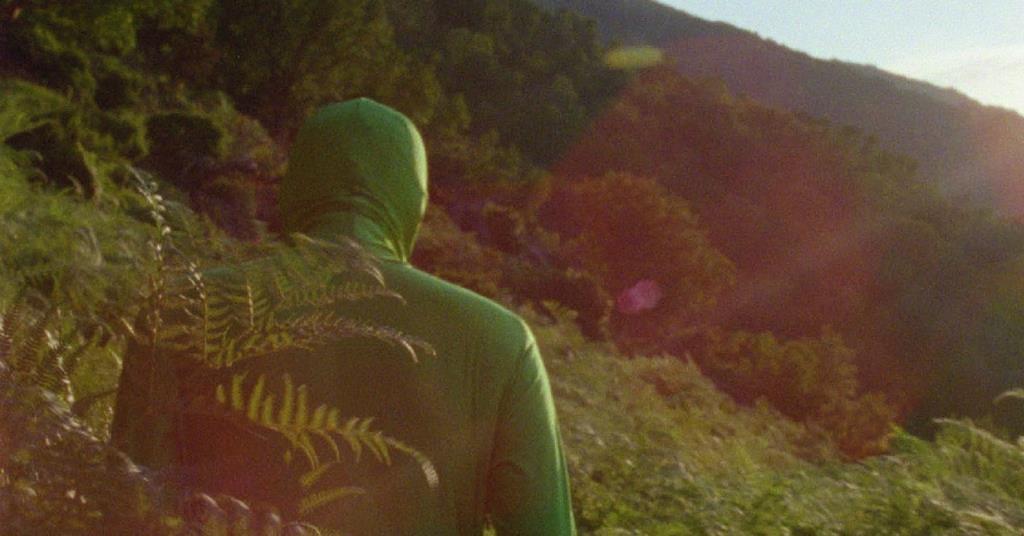The motion-packed saga ‘Monkey King: Journey to the West’ gets a fashionable acquire

Now, “Journey to the West” is mentioned to be the most preferred e-book in East Asia, as perfectly as a seed-text for children’s tales, films, anime and comics. Properly, then, Lovell’s translation carries a foreword by Gene Luen Yang, MacArthur-Award-profitable author of the graphic novel “American Born Chinese,” which draws on this rumbustious fantasy.
The marvel-filled narrative — 100 chapters in the initial — derives from well-known tales and dramas about a form-modifying trickster and proto-superhero who takes place to be a speaking monkey. Its other characters, as Lovell — professor of Chinese at the College of London — notes in her excellent introduction, involve “gods, demons, emperors, bureaucrats, monks, animals, woodcutters, bandits and farmers” — in limited a cross-segment of Ming-period imperial China.
The opening chapters depict the mysterious start of Monkey, his early spiritual teaching under a Taoist Immortal, his acquisition of a supernatural combating workers, and the hassle this simian upstart leads to when, in his quest for the key to everlasting life, he disrupts the celestial courtroom-in-the-clouds of the Jade Emperor. There he offends just about everyone, devouring the Jade Empress’s daily life-extending peaches and consuming the immortality elixirs of Laozi, the Taoist patriarch. Exiled back to Earth, Monkey and his armies struggle the forces of Heaven productively until eventually the Buddha lastly imprisons him underneath a mountain. His adventures, nonetheless, are just beginning.
All these preliminary chapters of “Monkey King” show a rollicking exuberance, considerably like Rabelais’s hyperbolic accounts of the giants Gargantua and Pantagruel. Monkey constantly acts with crude outrageousness — at one point he truly urinates on the Buddha’s hand. Mainly because the novel’s Chinese vernacular is the two vulgar and linguistically playful, Lovell’s translation adopts a snappy contemporary vibe. Heaven, we understand, “runs a cashless economy.” The welcome sign exterior the Underworld reads, “The Cash of Darkness: A Great City.” A hermit, questioned how he’s carrying out, answers, “Oh, same outdated, similar outdated.” Some of Lovell’s descriptive epithets even remember the comedian sententiousness of Ernest Bramah’s tall tales about the resourceful Kai Lung. The Pillar of Ultimate Peace, for occasion, refers to the execution block.
Just after 500 yrs move, Monkey is provided release from his imprisonment if he will turn into the disciple and bodyguard of a Buddhist monk enterprise an arduous mission to India. Tripitaka, as the monk is nicknamed, has been tasked by China’s emperor to bring back particular sutras of salvation from Thunderclap Monastery on Soul Mountain. A whiny, to some degree dimwitted holy guy, Tripitaka needs all the support he can get. His entourage eventually comprises a dragon that can think the shape of a horse, a former Immortal named Pigsy who “took a incorrect convert on the path to Karma and finished up being reborn as a hog,” an ex-cannibal called Sandy and, most essential of all, the clever and invincible Monkey.
Admittedly, all this appears fairly entertaining, fairly like a kung fu or superhero film. Monkey and Pigsy even exchange the de rigueur banter and mutual putdowns of these types of action videos. Sad to say, there is just no actual suspense to the different difficulties experiencing our heroes. Generally, some monster or demon spies the vacationers and decides to eat them. To do this, it transforms alone into an previous peasant, a fellow Buddhist or a lovely youthful woman. Invariably, all the pilgrims are taken in by this subterfuge, apart from Monkey, who saves the day with his very own form-modifying magic, then finishes off the fiend by smashing its cranium with his trusty iron employees.
Over time, Monkey does get some empathy and a moral feeling, most notably when he rescues 1,111 minor boys from getting sacrificed to a deluded king. Our heroes even find out a minimal about what everyday living is like for the opposite sex: When passing as a result of the Land of Women, Tripitaka and Pigsy accidentally drink a special drinking water that induces being pregnant. In the conclude, this ragtag band finally acquires the sutra scrolls from a surprisingly worldly-wise Buddha and achieves a kind of sainthood for themselves.
Nonetheless, I preferred to like the guide far more. Even abridged to a quarter of the first, its long central portion struck me as repetitive, tedious and cartoonishly crude. Overall, “Monkey King” lacked the charm of Western fairy tales, medieval chivalric romances or “The Arabian Nights,” every single of which it sometimes resembles. Neither was there any of the wondrous eeriness or erotic poignancy of Pu Songling’s marginally later on traditional, “Weird Tales From a Chinese Studio.”
Staying not happy with these lukewarm emotions, I made the decision that some more exploration might give me a deeper appreciation of this extensively acknowledged masterpiece.
As regular, I got caught up in that research, consulting reference guides, studying the introductions and afterwords to previously translations (by Arthur Waley, W.J.F. Jenner and Anthony Yu), and mastering about the historicity of Tripitaka and the different interpretations of this folks epic. Some critics, I identified, view this vintage as just slapstick enjoyment about a mischievous monkey, other individuals see it as a satirical critique of 16th-century China and however other people regard it as a religious allegory, maybe a plea for the necessary unity at the rear of Buddhism, Taoism and Confucianism. In Maoist periods, Monkey has even been proclaimed a Marxist revolutionary, intent on overturning the oppressive imperial buy.
Clearly, “Monkey King: Journey to the West” has extended been — and will keep on to be — a gratifying and fulfilling looking at expertise for many folks. It’s my loss that I’m not among them. However, I keep on being all the far more eager to try out many other monuments of Chinese fiction, starting up with Cao Xueqin’s 5-quantity novel of manners, “The Story of the Stone.”
Michael Dirda reviews textbooks for Style each and every Thursday.
Monkey King: Journey to the West
By Wu Cheng’en. Translated and edited by Julia Lovell.
Penguin Classics. 384 pp. $30








